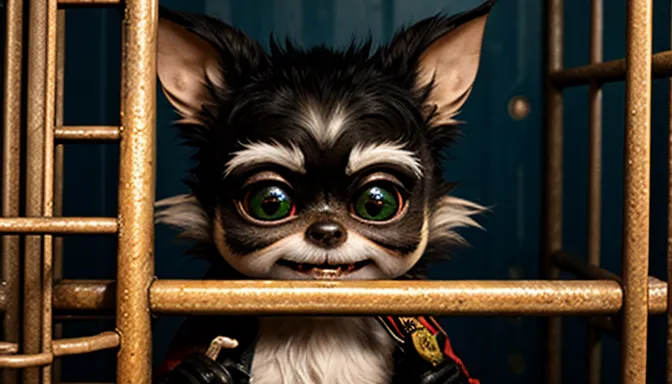Generative AI is for Cheaters

Generative AI is for Cheaters
The image above was created using Generative AI. I too, "cheated". And we'll get to that. But first, a relevant rant.
I'm a big fan of Saturday Night Live. I generally don't pay much attention to popular music, but I like to see the "live" music segments, which introduce me to popular up-and-comers, some of whom I quite enjoy, like Chris Stapleton. He's the real deal. Without SNL, I wouldn't know he exists. I'm not a country music guy.
Unfortunately, a significant majority of the performers either lip sync or have a quasi-live band playing along to a backing track. It's a faux performance. As a musician, it offends me.
Because they cheat.
Why do they do that? Perhaps it's because they can't do it live, or they lack confidence, or they feel compelled to deliver a "perfect" performance, or they didn't have enough rehearsal time, or they needed too many supporting musicians to deliver a studio-quality experience. The list of excuses goes on.
Or, maybe, they're just not that good. They're more product than artist.
I've even noticed some performers playing in local bars, laptops open and backing tracks blazing. It's everywhere.
I'm a pretty decent guitarist, and I love to perform, especially with other musicians. But I'm not top-tier and I never will be. What I can say, though, is that my performances are honest and human, warts and all. There are great moments and lousy moments and some wrong notes too. But it's all me.
When we allow artists to fake it, we have made a deal with the devil. We get a perfect "performance" from imperfect musicians, but it's not real. We allow ourselves to be duped. And seemingly, we want to be duped. We want perfection. Artists deliver what the audience wants.
By expecting perfection, we encourage artists to fake it, and we allow mediocre artists to thrive. And we thereby diminish those among us who are truly special, and truly talented.
To paraphrase Dash, from The Incredibles, "When everyone is special, no one is."
Generative AI is for Cheaters
Unfortunately, all of this also holds true for those who write using Generative AI. Writing is an art form. Through the miracle of writing, we transfer ideas and stories from one brain to many others, with detail and nuance that's just not possible through speech alone. It is innately human.
When you use Generative AI, you are effectively using written "backing tracks" to create a performance that is not representative of you and your capabilities. It diminishes your art. Yes, you can pump out a lot more content, but have you really created something? Is it you in those words?
Perhaps it doesn't matter, because you're using Generative AI at work, and after all your employer wants you to use it. You're in this for the money and your writing isn't about art, it's about business. The quality and originality isn't especially important — it's about selling a product. Or maybe, you write a blog that's loaded with affiliate links and advertisements, and you need to pump out a lot of content to make a living. And we all need to make a living.
But the bottom line is, no matter what we tell ourselves, using Generative AI is a cheat. It's plagiarism. The words and ideas are not ours, and not our company's either. They belong to the millions of authors who came before us, whose work found its way to the internet. While the powerful New York Times can sue OpenAI and Microsoft for stealing content to train their models, there are literally millions of other authors from whom Generative AI has also stolen, and they don't have the power to fight back.
When is it OK to Use Generative AI?
Yet, there's also another side to this coin. Generative AI, and AI in general, is fascinating, powerful, and frightening. It's a disruptor now and it will be a disruptor in the future in ways we can't fully understand and certainly can't control. No one and no government will stop it. It's here to stay, and it will continue to grow exponentially in power and reach. Technology feeds upon itself.
The AI Train has left the station. Be on it, or under it. Adapt or be left behind.
The deal with the devil has already been struck. Now what?
It becomes a choice we each must make to decide what our relationship with AI will be. Where will we draw the line between integrity and productivity, and between originality and lawful plagiarism?
Personally, I'm reluctantly on the AI train, and I draw the line between work and art. My art is music and writing, and my work is software development. When you hear my music and read my words, you can be sure these creations are mine, and mine alone, warts and all. When you use my software, there's a good chance I used Generative AI to help me build it.
What About Grammarly?
Did you know that some universities encourage the use of Grammarly? Grammarly uses Generative AI, as noted on their website:
Grammarly uses generative AI to help you write, rewrite, ideate, and reply with simple prompts or even at the click of a button.
This makes my stomach hurt.
When I started writing on Medium, I tried Grammarly, because it was recommended by popular, successful Medium writers as well as various publications. But I quickly stopped, because I don't like what it does to my writing. It "blandifies" my art. Does it make my writing better, more clear, more "correct"? Probably, but it also diminishes my style, my idioms, my flaws, my mistakes, and my humanity. It's not for me.
I would rather deliver an honest, if flawed performance, warts and all.
And you must also decide where you stand.